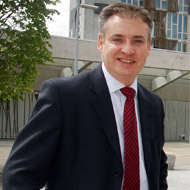
UK farmers could lose CAP support upon leaving the EU
Scotland's Rural Affairs Secretary, Richard Lochhead, has warned that the EU referendum is the biggest threat facing British farming.
Upon leaving the EU, UK farmers could lose Common Agricultural Policy (CAP) direct support, which is valued at £20 billion for this CAP period (2014-2020).
Speaking at the Oxford Farming Conference, Richard Lochhead also stressed the need for changes to the farm and rural funding system, but insisted that reform should take place from within Europe.
Mr Lochhead said: “Westminster’s in-out referendum on the EU is a £20 billion gamble with the future of Scottish and British farming.
“The CAP is a protective shield for UK agriculture. Leaving the EU would mean leaving the CAP. It would be folly to think the UK Government would fund farming at anywhere near existing levels from domestic budgets and so the EU referendum is the biggest risk to agriculture in this country.
“The stakes are high, especially for Scottish farmers and crofters for whom CAP support is a vital lifeline. It is more difficult to make a living from the land in Scotland – of which 85 per cent is classified Less Favoured Area – and we have a predominance of livestock sectors which often face the biggest challenges in terms of profitably."
Mr Lochhead also called for the CAP to be simplified and to focus on sustainable food production, economic growth and ensuring farmers of the future are available to provide food and capitalise on demand for Scottish produce around the world.
Image (C) Scottish Governement



 HMRC has invited feedback to its communications regarding the employment status of locum vets and vet nurses.
HMRC has invited feedback to its communications regarding the employment status of locum vets and vet nurses.